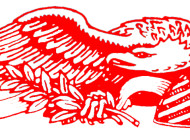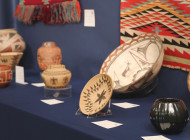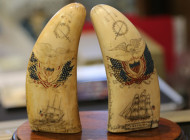WASHINGTON DC – On April 7, the Washington DC Council voted unanimously in a 12-0 decision to ban the sale of ivory and rhinoceros horn within city limits. The bill, “B23-0034 – Elephant Ivory and Rhinoceros Horn Trafficking Prohibition Act of 2019,” was led forward by councilmember Mary Cheh. Ivory sale prohibition had failed to pass twice before.
The bill defines ivory as “the tooth or tusk composed of ivory, whether raw or worked, from any 24 species of elephant, hippopotamus, mammoth, mastodon, narwhal or whale.”
Exemptions include individuals who: bequeath the prohibited animal product to the legal beneficiary of an estate or trust upon the death of the owner; gift or donate the prohibited animal product without remuneration; are a government employee or agent conducting law enforcement activities pursuant to federal, state or local law; are an educational or scientific institution that imports, sells, offers for sale, purchases, barters, trades or possesses with intent to sell a prohibited animal product for educational or scientific purposes; are engaged in activity that is expressly authorized by federal law or a permit issued pursuant to federal law.
Further exemptions in regards to sellers include those who: import, sell, offer for sale, purchase, barter, trade or possess with intent to sell a prohibited animal product that is part of an antique that is composed of not more than 20 percent of a prohibited animal product by volume; and the person can, through documentation, establish provenance and demonstrate that the antique is at least 100 years old.
Exemptions for instruments include: those who import, sell, offer for sale, purchase, barter, trade or possess with intent to sell a prohibited animal product that is part of a musical instrument that is composed of less than 20 percent of a prohibited animal product by volume; and the person can establish provenance and demonstrate that the musical instrument was manufactured before 1976.
The bill notes that the act of obtaining an appraisal of a prohibited animal product alone shall not constitute possession with intent to sell or offer for sale.
Penalties for breaking the law include: for a first offense, offenders will be fined no more than $1,000 or twice the value of the prohibited animal product, whichever is greater, incarcerated for no more than 30 days, or both; for a second offense, be fined no more than $5,000 or twice the value of the prohibited animal product, whichever is greater, incarcerated for no more than one year, or both; and for a third or subsequent offense, be fined no more than $25,000 or thrice the value of the prohibited animal product, whichever is greater, incarcerated for no more than three years, or both. For any offense where the total value of the prohibited animal product is greater than $25,000, a person convicted of unlawful distribution of a prohibited animal product shall be fined thrice the value of the prohibited animal product, incarcerated for no more than three years, or both. If the person convicted of unlawful distribution of a prohibited animal product is not an individual, the court may double the applicable fine.
The bill now goes on to Mayor Bowser to be signed into law.
To read the legislation, http://lims.dccouncil.us/Download/41624/B23-0034-Engrossment.pdf.
Councilmember Cheh did not respond for comment.




